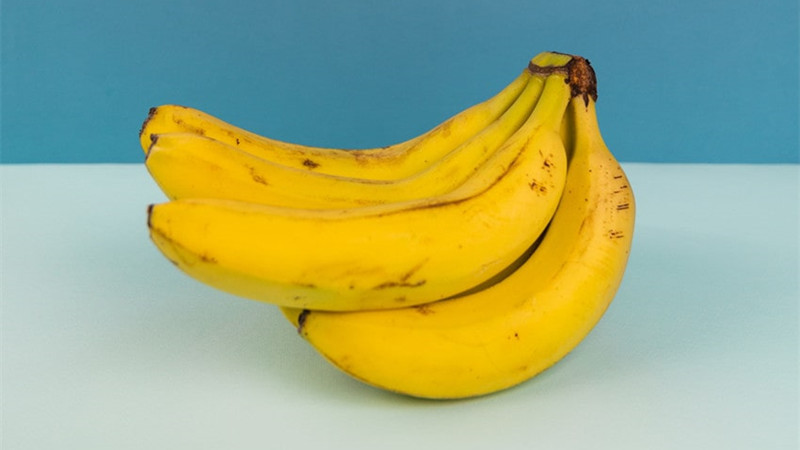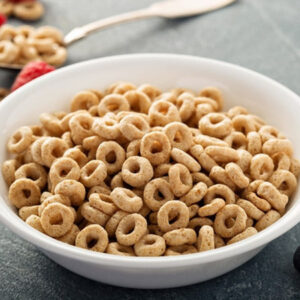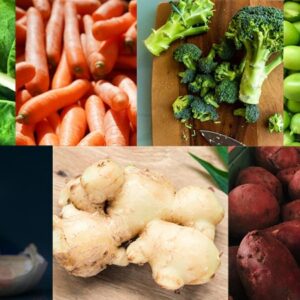
For a long time, bananas have remained the most commonly consumed fruits in the world ahead of apples. Their popularity is mainly attributed to the fact that they’re cheap and readily available. Recent studies have shown that over 100 billion bananas are consumed globally every year.
So, since you’re likely to eat bananas once in a while, it’s important that you appreciate the most significant nutrition facts about bananas.
Nutrition Facts about Bananas

A lot of conflicting statements have been made regarding the nutritional and health benefits of bananas, with some people claiming that bananas can result in weight gain and constipation while others consider them to be the “iconic golden fruits” that offer your body numerous health benefits. Unfortunately, these conflicting arguments have only contributed to the uncertainties surrounding bananas even forcing some people to abandon them for other fruits.
But what’s the real truth about bananas? Do they offer any nutritional value to your body? This article offers you the true nutrition facts about bananas so you can include them in your diet without any degree of uncertainty.
First, it’s important to note that a single medium-sized banana weighing 118 grams is estimated to offer you 105 calories, 14.4g of sugar, 27g of carbohydrates, and 1.3g of protein. Additionally, bananas are known to be a significant source of potassium. A single serving of bananas offers you approximately 422mg of potassium. Here’s a more detailed breakdown of the nutritional value of a banana.
Carbohydrates
As noted above, a single banana contains approximately 27g of carbs. A medium-sized banana is defined as a 7-inch to7 7/8-inch long banana. The 27g of carbs are made up of 3g of fiber, and 14g of naturally occurring sugars.
That’s why it’s very important for anyone with diabetes to count bananas as two-carb counts or two-carb choices. Additionally, ripe bananas tend to have more sugar than their raw counterparts. As a banana ripens, a significant amount of its resistant starch, which comes in the form of fiber, is converted to sugar.
So, a yellow banana with brown dots has less fiber and more sugar than a green banana. A banana’s glycemic index ranges from 48 to 54.
Fats
Bananas have very little fat. A medium-sized banana contains less than 0.5g of fat. Since bananas have small amounts of fat-soluble vitamins A and K, eating them with other fatty foods like meat can help to unlock this nutritional benefit.
You can also pair them with peanut butter, which contains 10g of monounsaturated fat, 3.3g of polyunsaturated fat, and 2.8g of saturated fat.
Vitamins and Minerals
As mentioned above, bananas are very rich in potassium. A medium-sized banana can have 422mg of potassium, which is 9 percent of the daily potassium value recommended by the United States Department of Agriculture (USDA). Other essential vitamins and minerals found in a banana include vitamin C, magnesium, choline, and folate, albeit in very small amounts.
Protein
Bananas aren’t very rich in protein. A medium-sized banana is estimated to have only 1.5g of protein. But you can increase this protein value by eating your bananas with peanut butter, which contains 8g of protein per two tablespoons. Additionally, incorporating Carnivore Snax can also boost your protein intake.
Calories
A medium-sized banana contains approximately 105 calories, which is significantly higher than other fruits. For instance, a medium-sized gala apple contains approximately 61 calories, while a medium-sized naval orange offers you about 72.8 calories. One cup of red grapes (seedless) offers 129 calories.
Nutritional Benefits of Bananas

Aside from learning the nutritional content of bananas, it’s important to understand the kind of nutritional and health benefits you can get from bananas.
1. Managing Diabetes
Green bananas are known to be very rich in resistant fiber/starch, which aids in digestion. You can either dry your green bananas and ground them into flour or pulp and add it to your daily meals. Flour obtained from green bananas is very effective in improving insulin sensitivity and accelerating weight loss.
This flour also reduces certain liver and kidney problems, especially the ones that are associated with diabetes. Therefore, adding this flour to your daily diet is important for long-term diabetes management.
2. Improved Regularity
Bananas are good for improving your gut health because they are high in prebiotics – fermentable fibers that the “good bacteria” feed on to flourish. They also contain a significant amount of probiotics, especially when taken in the form of fermented flour or pulp. When the good bacteria in your gut flourish, your gut can digest food properly thus eliminating common digestive problems like constipation.
You can even pair your bananas with other foods that have live cultures like natural yogurt to support your gut and bring more regularity to your digestive system. Green bananas have also been found to relieve constipation and diarrhea, especially in children. In short, eating green bananas is a perfect way to keep your digestive system working normally.
3. Enhancing Weight Loss
Although ripe bananas contain large amounts of sugars and starch, green bananas are considered to be low-calorie food. They’re also high in filling fiber, which supports weight loss. This fiber will keep your stomach full for a long time, preventing you from overeating.
Also, every three grams of fiber comes with 100 calories, which is within the recommended range of daily calorie intake. There’s a direct link between higher fiber intake, calorie decline, and loss of weight. Therefore, adding more grams of fiber to your diet speeds up the process of losing weight.
The good thing about bananas is that they can be taken as a snack in the morning or during the day to keep your stomach full.
4. Lowering Blood Pressure
As a major source of potassium, bananas are known to lower high blood pressure. Potassium helps to regulate blood circulation in your body thus keeping your blood pressure within the normal range. You can make the potassium in your bananas even more effective in lowering your blood pressure by pairing them with a low-sodium dietary plan or a DASH diet.
Regular consumption of bananas contributes to your daily potassium needs to maintain the right blood pressure and prevent serious health complications like kidney disease, and stroke. So, instead of taking a salty snack, go for a banana.
5. Promoting Wound Healing
Banana peels are known to contain antioxidants and anti-inflammatory properties that can help your wounds to heal quickly. For centuries, these peels have been used as traditional medicine for treating wounds. In some communities, the raw banana peels are sliced into small pieces and placed on mosquito bites or minor cuts to offer relief and accelerate healing.
While modern medical specialists may dispute the effectiveness of banana peels in healing wounds, they don’t dispute that these peels and bananas generally have wound-healing properties like vitamin C and various antioxidants. Vitamin C promotes collagen which enhances skin integrity.
Side Effects
Even with all these health benefits, bananas can easily cause constipation, especially if you consume too many of them at once. You should increase your banana intake suddenly if you’re not used to consuming a lot of fiber. Do it gradually to help your digestive system get used to large amounts of fiber.
You should also stay hydrated when you consume too many bananas by drinking enough water. Bananas are best taken when they’re still green by grounding them into flour or pulp. If you prefer ripe bananas, don’t wait until they’re overly ripe to eat them because most of their resistant starch will have been converted to sugar, which isn’t good for your health.








